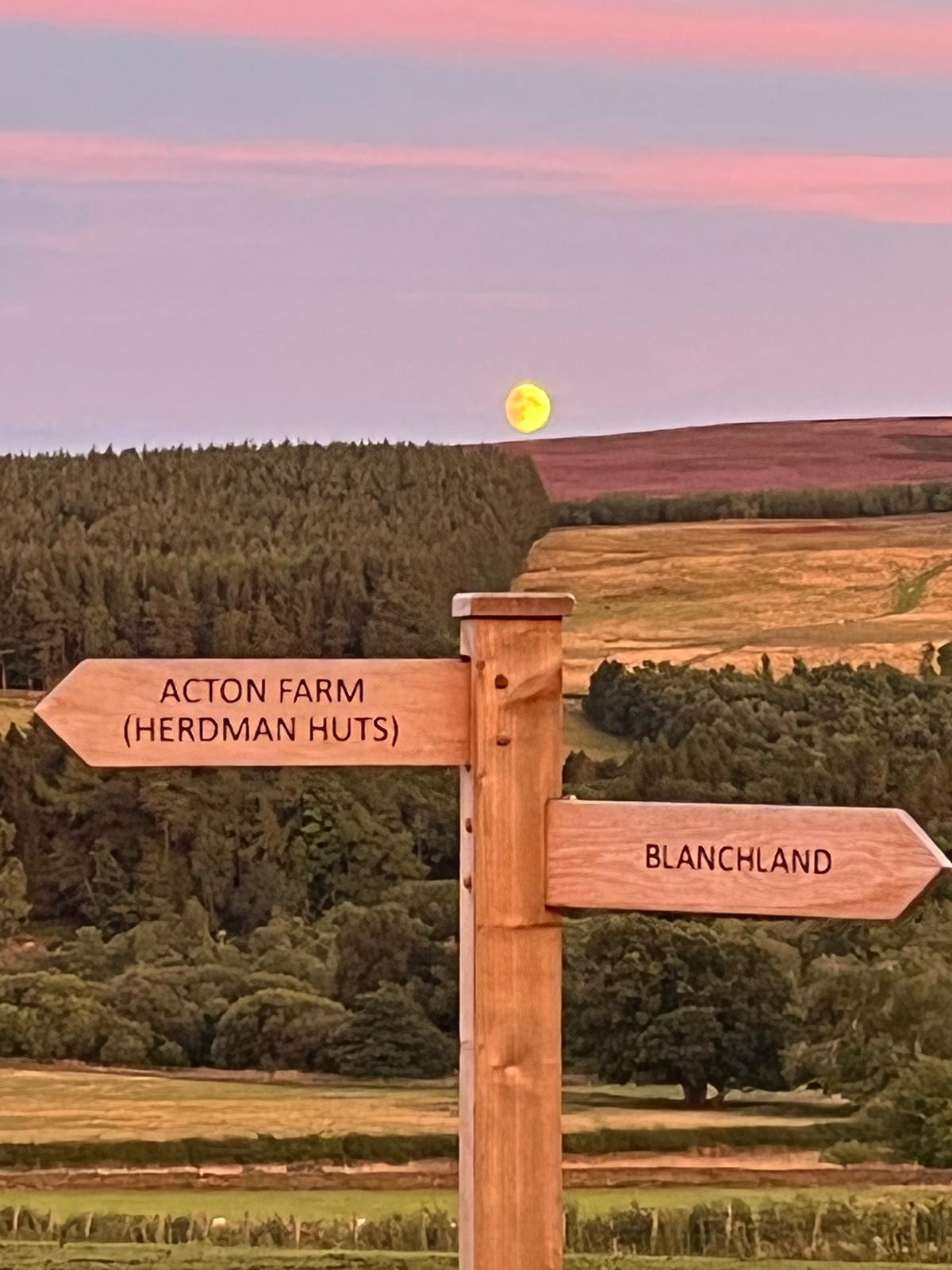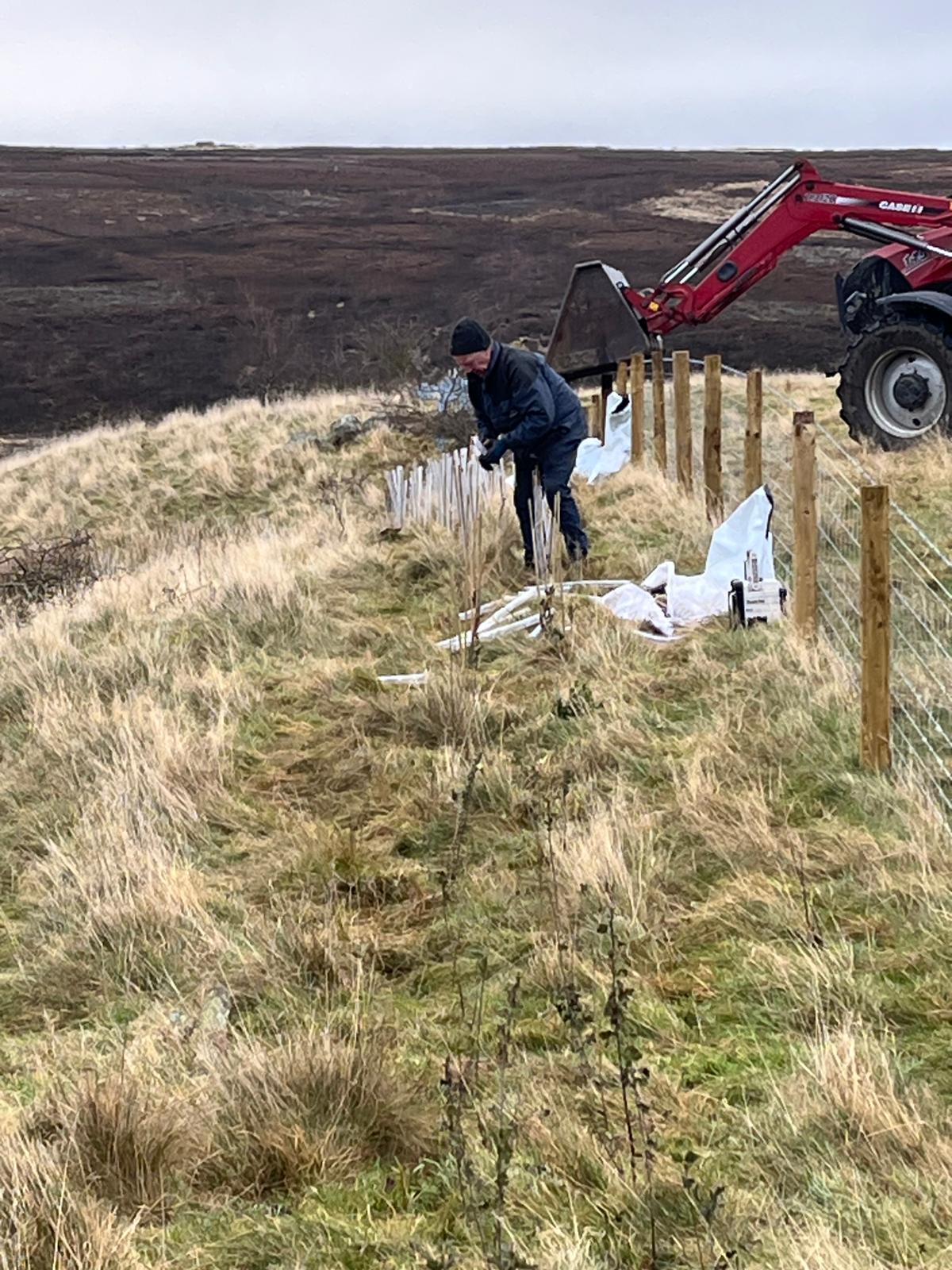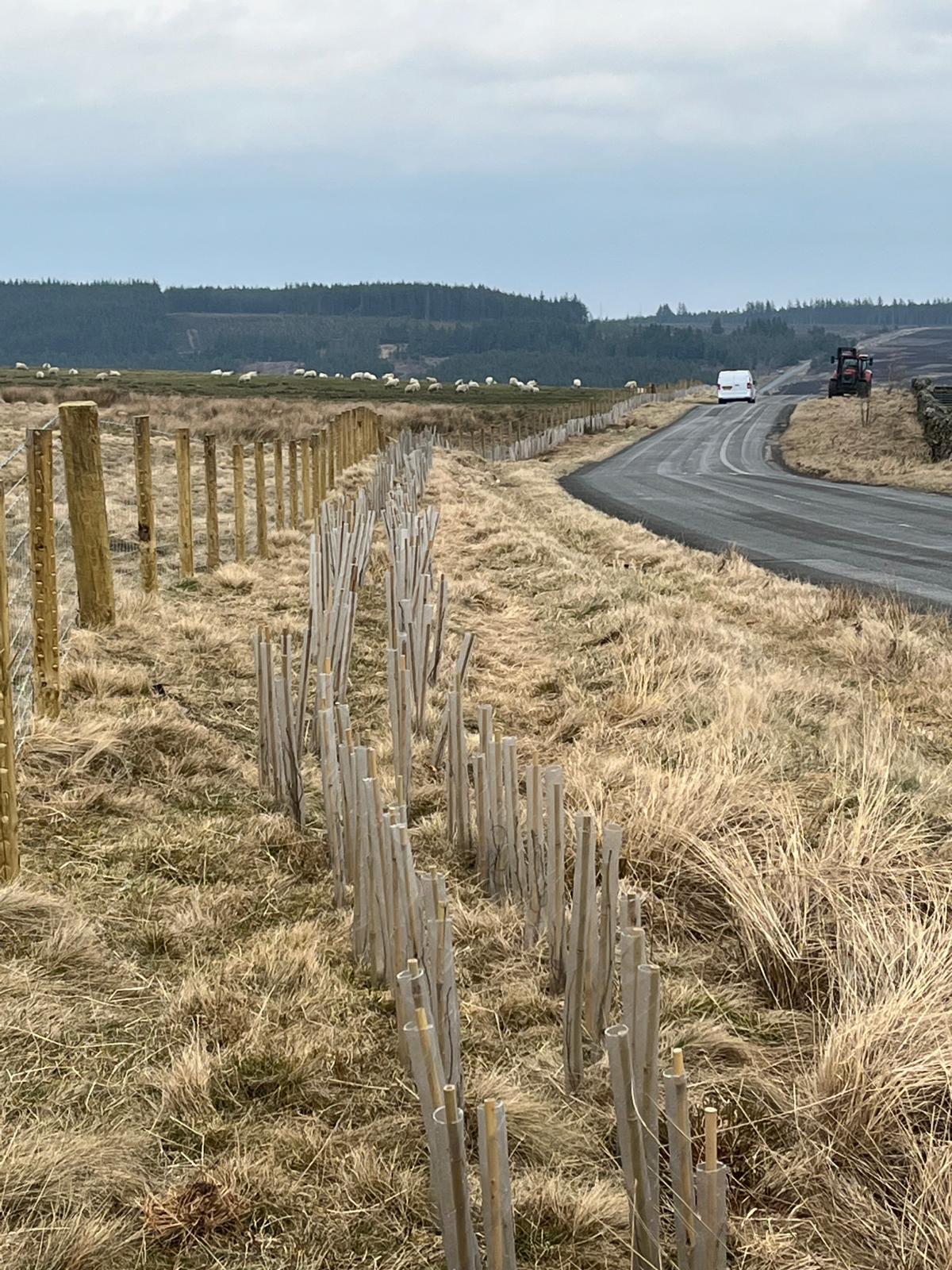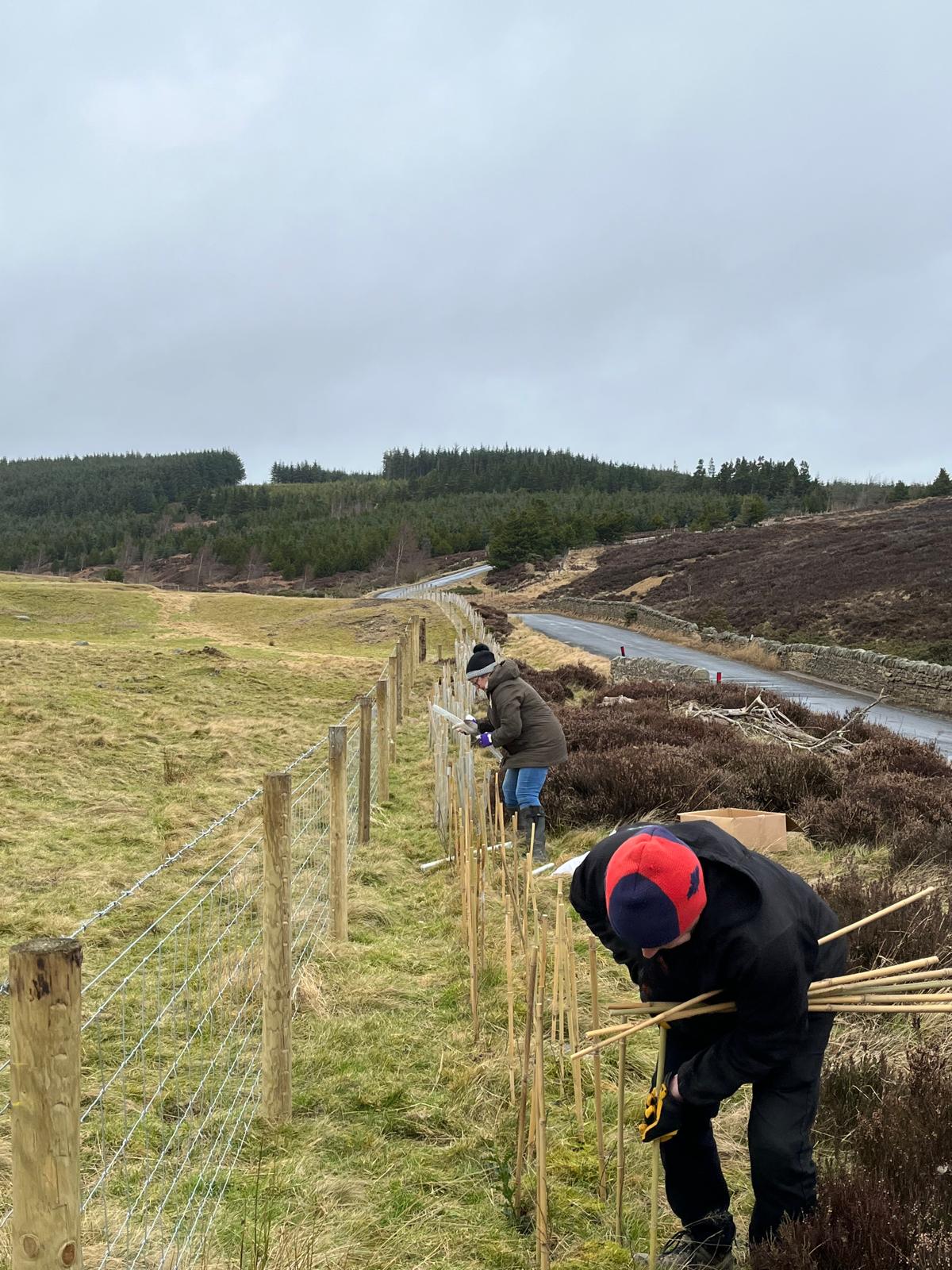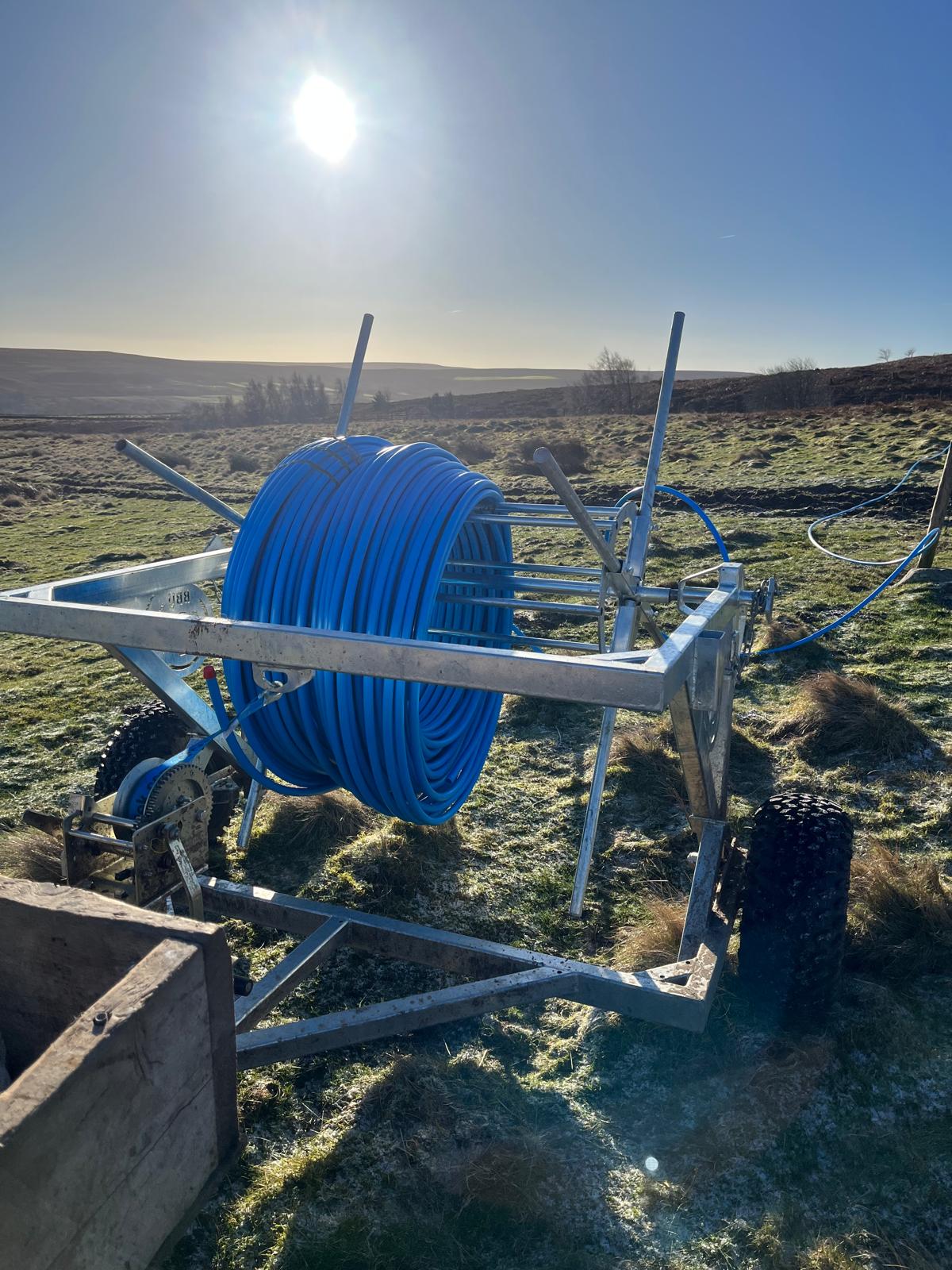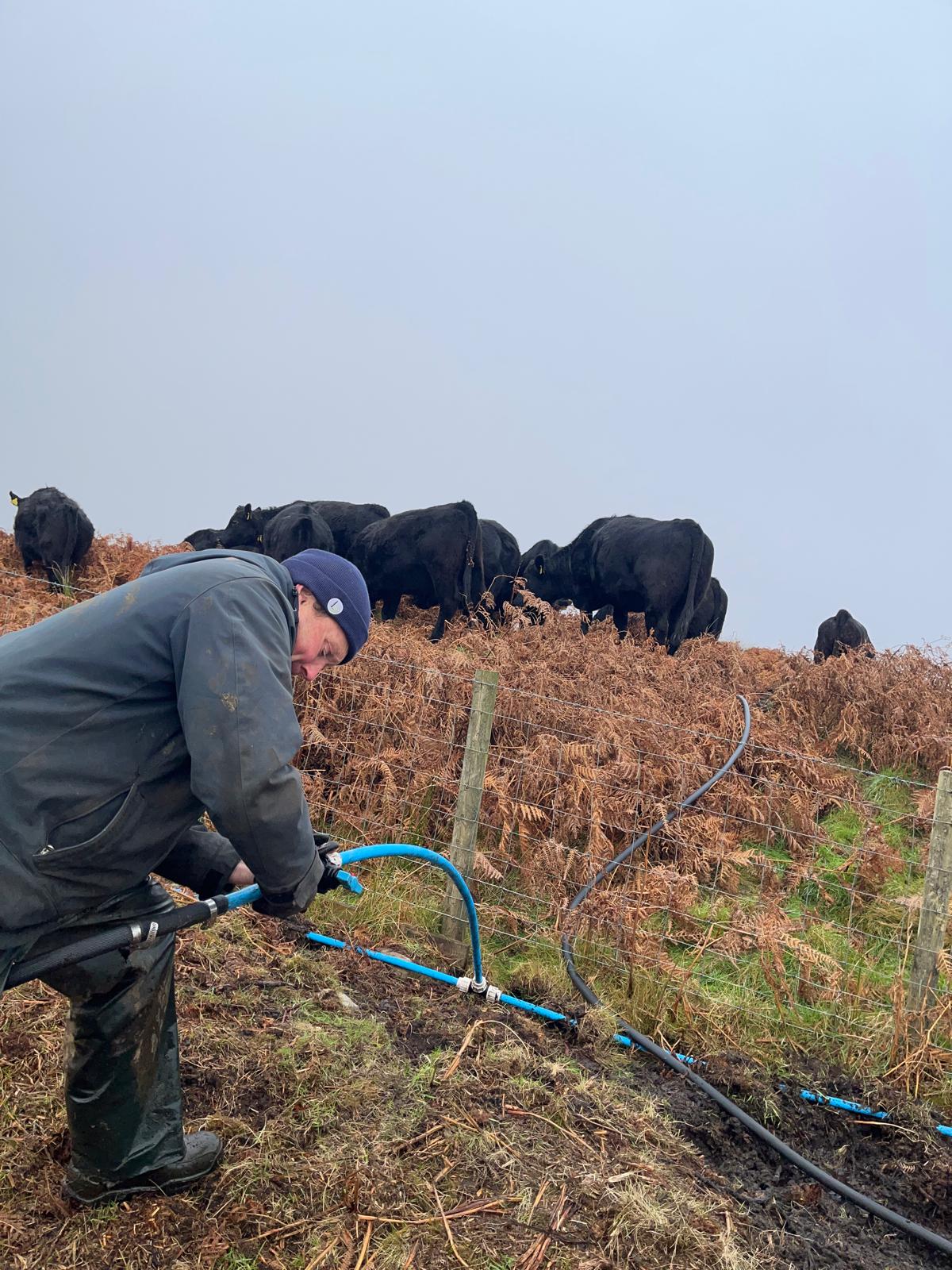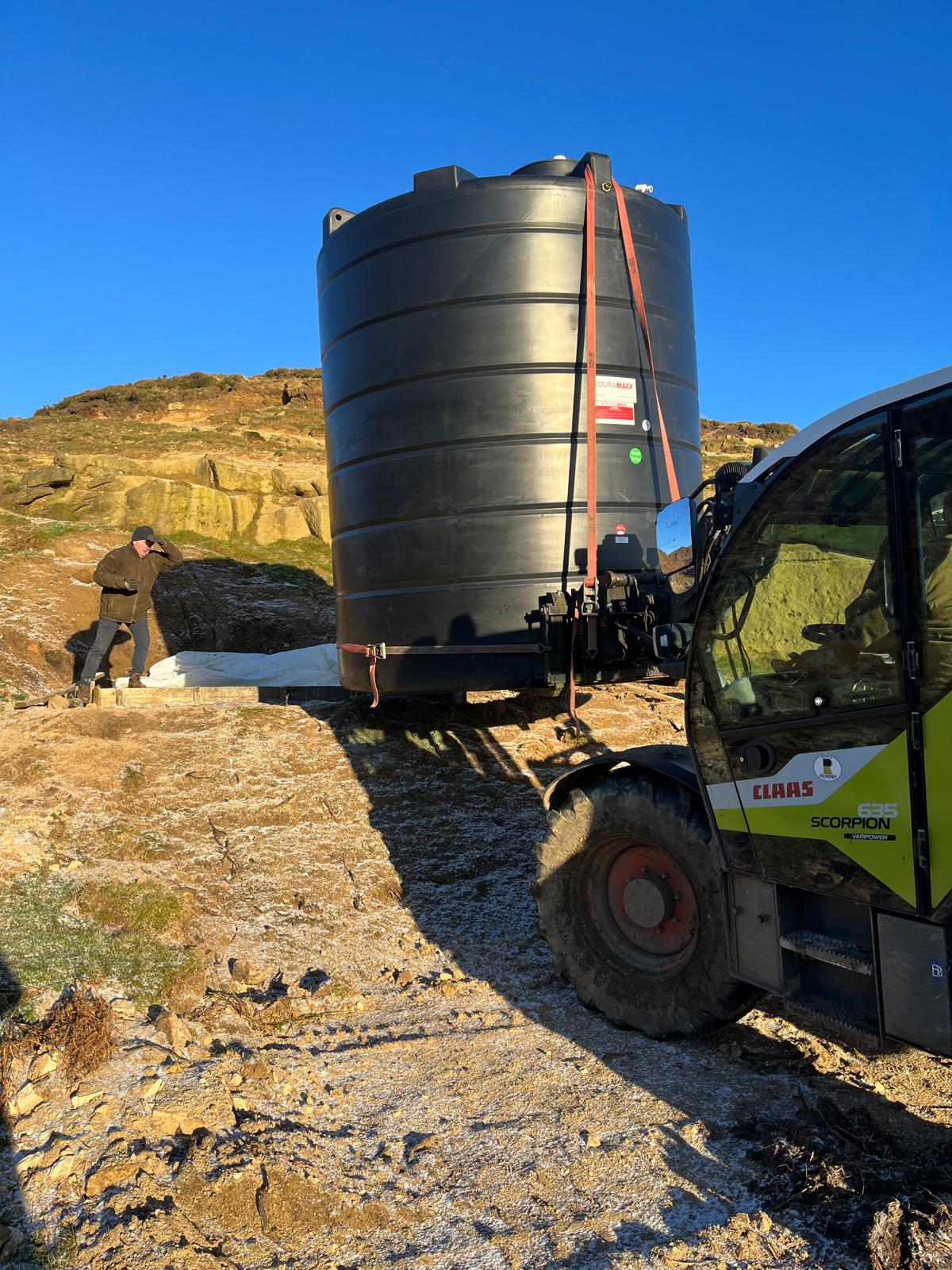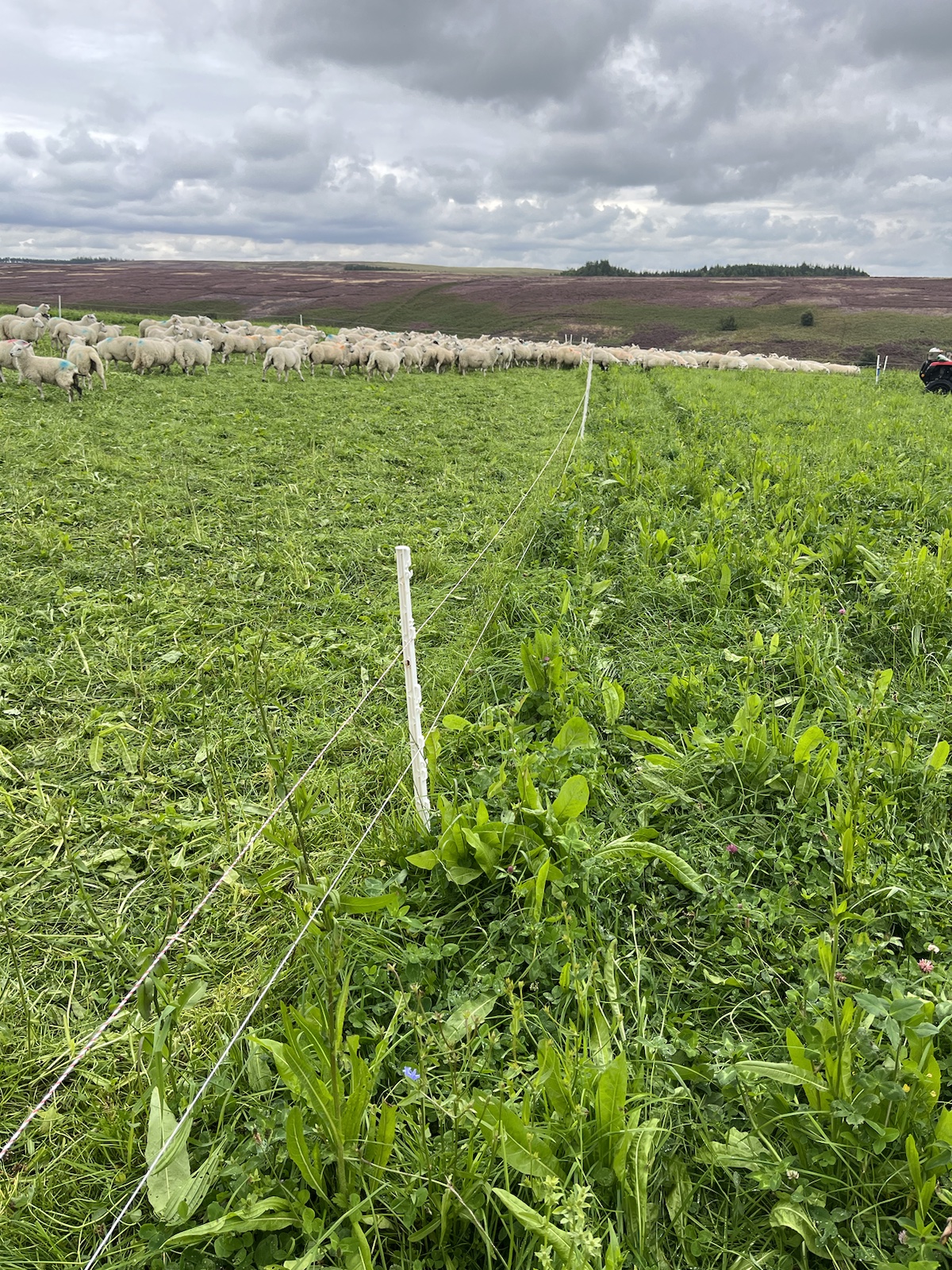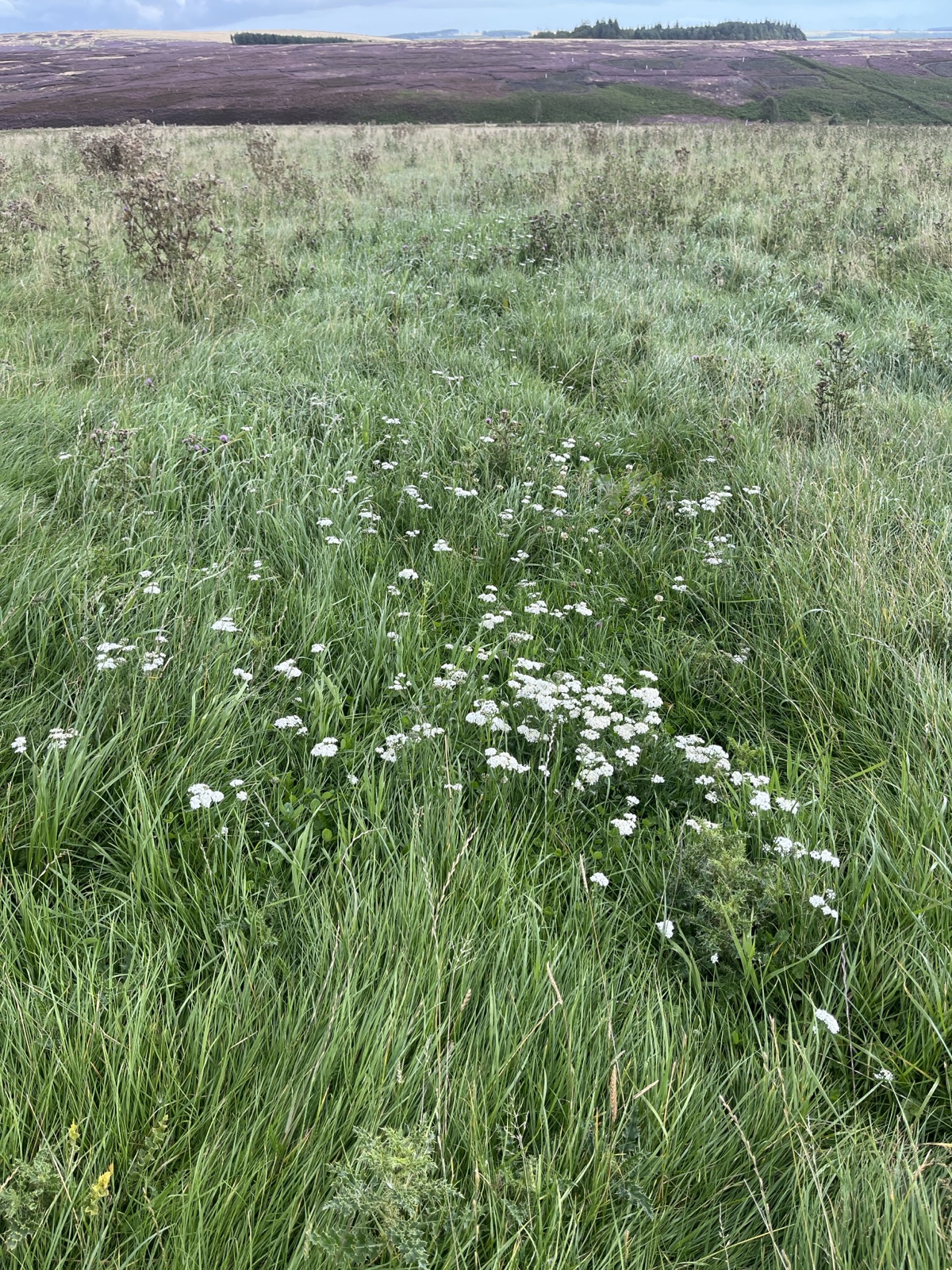News
World Soil Day
World Soil Day
5 December 2024
For World Soil Day 2024 we are sharing news of how funding from Defra’s Farming in Protected Landscapes Programme is helping a farmer near Blanchland in the North Pennines National Landscape to improve soil structure by enhancing rotational grazing practices on his land.
The grant is supporting the farm’s regenerative agriculture system, funding a water system to facilitate rotational grazing so that the whole farm can benefit. Rotational grazing involves dividing up fields and grazing livestock on small parcels for about one day before moving them on.
The principle is that after grazing, the land can rest causing the vegetation to root deeper into the soil. In turn, this improves soil structure and microbiology meaning water can infiltrate into the ground much easier. More water can be stored in the land during heavy rainfall reducing overland flow and even reducing flooding severity. With moisture stored in the ground it is also a benefit for vegetation during drought periods.
The water system on the farm comprised of two ponds where the water is initially collected, a storage tank and series of pipes with moveable troughs. These troughs are lightweight so can be dragged and plugged into the water network once livestock have been moved on.
Continued funding has enabled training in faecal egg counting and paid for equipment that allows testing to take place on the farm. This helps target treatment to only the livestock that need it and therefore reduce the amount of anthelmintics (antiparasitic drugs) used on livestock. This has a positive impact on invertebrates, like dung beetles and earthworms, that live in and benefit the soil, as these are normally killed by wormers. Dung beetles and earthworms have an important role in nutrient recycling and carbon sequestration within the soil so its vital to keep these insects thriving on farms.
There has also been support to plant new hedgerows and trees across the farm. Planting hedgerows is important for soil health as they will act as barriers to overland flow of water and prevent topsoil being swept away in heavy rainfall. They also improve soil structure by anchoring the soil and keeping it firmly in place.
So far 2,016m of new hedgerow has been planted and as a wider benefit the grant has also funded 1,490m of new permissive access footpaths as well as upgrading stiles and installing more accessible gates.
Meg Bamford, Farming in Protected Landscapes Officer with the North Pennines National Landscape team said, “The planting of hedges, with the added advice from the RSPB, is helping to store carbon, and is providing low density scrub ideal for black grouse that thrive on the farm. The introduction of rotational grazing has increased the diversity of plants and reduced disturbance of breeding waders that nest on the ground. By creating ponds, the farmer is providing sites for waders and other birds to feed. Improved signage and permissive footpaths are making access easier enabling people to experience the wildlife that exists on the farm. Incorporating nature recovery into farming practices is also enhancing the landscape character of the area.”
Through the Farming in Protected Landscapes programme projects are being funded across the North Pennines to enhance nature recovery, protect the landscape, make positive actions to mitigate against climate change and improving accessibility and enjoyment for people who live in, work in and visit this area.
